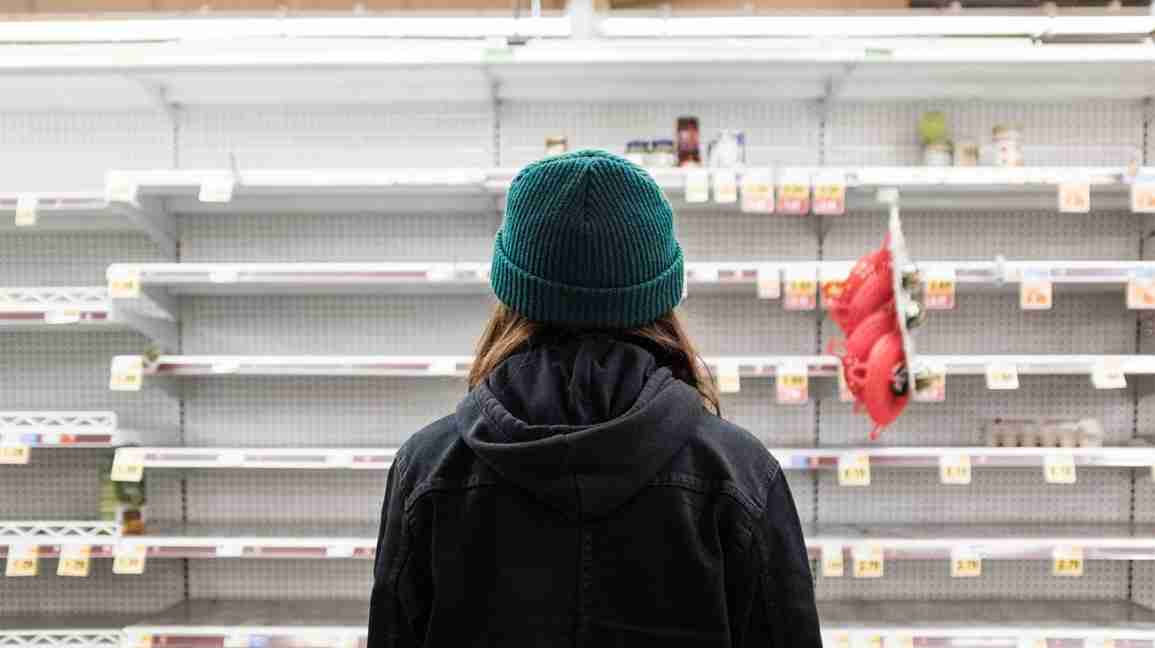No, a self-quarantine is not a “staycation” — it’s a preventive measure that literally saves lives.
This article was updated to include information about home testing kits on April 27, 2020.
“It’s basically just the flu! It’s no big deal.”
“It’s nice to have a little staycation. Thanks, coronavirus!”
“I’m not having any symptoms… why should I have to self-quarantine?”
If you don’t live with a chronic condition (or aren’t immunocompromised in any way), it’s pretty easy to make flippant comments about COVID-19 and its potential impact.
After all, for “healthy” folks, contracting the virus is unlikely to result in any serious consequences.
An inconvenient period of self-isolation and some nasty flu-like symptoms are manageable enough. So what’s everyone panicking about?
A pandemic like COVID-19 has a very different impact on people whose immune systems are compromised.
When you’re chronically ill, even the common cold can set you back for weeks, and your ordinary flu season can be treacherous and even deadly.
This recent coronavirus disease outbreak, then — for which there’s still no vaccine and very limited testing available — is a waking nightmare for many.
So what can we do for our chronically ill neighbors and loved ones during this outbreak? If you’re not sure, these suggestions are a great place to start.
Yes, it’s true that panicking during a pandemic isn’t necessarily helpful.
In any kind of crisis situation, we want people to remain calm and make smart choices! And while most “healthy” individuals will recover (and even remain asymptomatic) if they contract the virus, it’s awfully tempting to see the heightened response to COVID-19 as an overreaction.
But — and you knew there was a “but” coming, right? — this assumes that anyone with a compromised immune system doesn’t matter in this conversation.
That couldn’t be further from the truth, though — which is why the CDC has advised chronically ill people to take serious steps to prepare and, if possible, self-isolate.
While COVID-19 won’t impact each individual in the same way, each one of us has the ability to be a carrier of the virus. That’s why everyone should be taking it seriously. We all have an obligation to make responsible choices, because our choices impact everyone around us.
How seriously we take the new coronavirus doesn’t just affect us as individuals, but it affects our communities, too — especially those who are most vulnerable.
So rather than telling people not to “overreact” to this outbreak, try encouraging those around you to take a proactive position.
Educate yourself and others about the best prevention methods, and commit to supporting one another in your efforts.
The CDC
Note: It’s critical to reserve surgical masks and N95 respirators for healthcare workers.
Because there’s currently no vaccine for COVID-19, the best way to stop the spread of infection is to utilize as many preventive measures as possible.
This, of course, means frequent hand washing (for at least 20 seconds!), cleaning objects you use frequently, not touching your face, and practicing social distancing.
This can also look like canceling the book club you host, working from home if possible, getting your groceries delivered, canceling travel plans, and really any measure that allows you to avoid large gatherings — even if you don’t think you’ve come into contact with the virus.
It also means that if you begin to show symptoms of COVID-19, staying home is critical.
Because there’s currently no cure, consider whether you need to go to the emergency room or urgent care.
A hasty rush to the ER often means exposing immunocompromised people and healthcare workers who are less able to protect themselves. Testing kits are limited, and many people who visit the ER are being turned away in order to prioritize higher risk groups.
Instead, call your doctor, monitor your symptoms, and if you’re advised to go to a clinic or hospital, call ahead of time and wear a mask if at all possible.
On April 21, the
The emergency use authorization specifies that the test kit is authorized for use by people who healthcare professionals have identified as having suspected COVID-19.
Isolation is one of the best defenses we have right now in ensuring that COVID-19 can be contained and to protect our most vulnerable populations.
Many people have been urged to self-quarantine by public health and medical experts, particularly after coming into contact with the virus.
However, stories have since surfaced of individuals breaking quarantine (I even tweeted about my own exposure as a result of people ignoring this recommendation). Their logic? “I feel fine! I’m not showing any symptoms at all.”
The problem is, you can still be a carrier of the virus without exhibiting any symptoms.
In fact, symptoms can take anywhere from 2 to 14 days to appear after exposure to the virus. While the risk of transmission is low when symptoms aren’t present, it’s still possible to transmit the virus, especially to immunocompromised individuals who are inherently more susceptible.
The moral of the story? If a health official or medical doctor tells you to self-quarantine, you absolutely should, regardless of whether or not you’re exhibiting symptoms.
And to be clear, this means staying home and not leaving. Which seems obvious, but apparently we’re all still struggling to grasp this one.
The baby wipes and toilet paper that you cleared out at the store? They’re actually essential (and now very difficult to access) for people with digestive disorders.
The face masks and sanitation products you purchased in bulk? They might be the difference between someone with a chronic illness being home bound or not.
In other words? There’s a fine line between preparedness and hoarding.
Unless you’re part of an at-risk group, the responsible choice is to stock up on supplies a little at a time, ensuring that others who need them more urgently can still purchase them.
If you clear out store shelves just to ease your own anxiety, you run the risk of denying people in more dire situations the supplies they rely on to survive.
Instead, if you’ve got resources to spare, please consider reaching out in your community to see if any of your neighbors are struggling to access what they need.
Speaking of helping out, if you’ve got any chronically ill folks in your life, they almost certainly have errands that they’re avoiding due to the exposure risks involved.
Do they need help getting groceries or medications? Could they use a lift to work to avoid using public transit? Do they have all the supplies that they need, and if not, are there any you could bring to them? Do they need to unplug from the news, and if so, are there stories they’d like you to monitor for them?
Sometimes the simplest gestures are the most meaningful.
Asking questions like, “Do you need anything right now? How are you holding up? What can I do?” can signal to your loved ones that their well-being matters to you.
Knowing they aren’t alone in navigating what is undoubtedly a very scary time for them can mean the world.
When we think of people who are most vulnerable during this outbreak, many of us assume that this only includes older adults.
However, anyone can have a chronic condition, and as such, this means that anyone could be immunocompromised — including young people, folks who “look healthy,” and even people that you know.
So if someone tells you that they’re immunocompromised? It’s important to believe them.
And just as important? Don’t assume that you can know who is and isn’t immunocompromised just by looking at them.
You may, for example, work at a university with young people who “seem healthy,” but that doesn’t mean they aren’t part of an at-risk group. You might attend a dance class and assume that everyone is able-bodied and therefore not especially vulnerable — but for all you know, someone is taking the class to help manage the symptoms of their chronic condition!
It’s also true that you might come into contact with a caregiver who works with an at-risk population, making it even more important not to make assumptions about who is and isn’t vulnerable.
So if it’s recommended that you self-isolate? Don’t assume that you can bend the rules. You can still be putting someone in danger even if no one around you “looks compromised.”
You should assume that any time you go out into the world, you almost certainly are coming into contact with someone who’s immunocompromised (or cares for someone who is), and behave accordingly.
No, a self-quarantine is not a “staycation” — it’s a preventive measure that literally saves lives.
Downplaying the importance of protecting vulnerable people is what leads people to ignore recommendations to self-isolate in the first place! It gives people the impression that these measures are optional and “for fun,” when in actuality, it’s one of the few reliable ways we can contain the spread of COVID-19.
As Twitter user @UntoNugget rightfully pointed out, this also trivializes the struggles of being home bound — not for fun, but out of sheer necessity — which many people with chronic illness grapple with.
Similarly, when talking about COVID-19, it can be outright offensive to make comments like, “We’re all going to die!” and likening it to an apocalypse… or on the flip-side, making fun of people who express sincere panic due to their own vulnerabilities.
The reality is, “we” aren’t all going to contract a more serious form of COVID-19 — but those who are unlikely to should still be mindful of those that could.
Many people are living with the (very valid) fear that they’ll become gravely ill because of their chronic condition, and we should take them and their concerns seriously.
More often than not, people with chronic illnesses are extremely educated around their own conditions and the issues that impact their health.
So when you frantically send them an article about the new coronavirus and ask, “Did you see this??” Chances are, they read it last week. Frankly, many of us have been watching this story develop long before anyone else.
People with chronic conditions don’t need lectures right now about hand sanitizer and the pros and cons of wearing a face mask.
And unless someone asks you to help them find articles or resources? You probably shouldn’t send them.
Instead? Consider just… listening. Check in and ask how they’re doing. Offer a safe, compassionate, and nonjudgmental space for them to share their honest feelings. Allow them to be sad, scared, or angry.
Chances are that’s going to be a lot more helpful than the segment Dr. Oz did about hand washing.
There’s a serious mental health toll on anyone who’s tuned into the news cycle around COVID-19 right now.
With so much misinformation and panic, and new information emerging daily, you’d be hard-pressed to find someone who isn’t at least a little rattled right now.
But if you live with a chronic condition, a pandemic like COVID-19 takes on a whole new meaning.
You run the numbers, considering what might happen financially if you landed in the ICU. You consider the lifelong consequences of something like lung scarring for a body that’s already vulnerable.
You encounter think pieces that suggest you’re a burden on the healthcare system. You encounter people who are more concerned with the stock market than your own life.
You watch as people take unnecessary risks that jeopardize your health (and the health of the people that you love) over, and over, and over again because “they were feeling cooped up.”
And you sit with the frustration that for everyone else, these precautions are novel at best, even amusing.
Meanwhile, navigating the imposing threat of serious illness was your daily life long before anyone knew what “coronavirus” was.
Add a pandemic to the mix, and you can imagine why it’s an especially hard time to be chronically ill right now.
That’s why it’s so important to offer grace and compassion when you’re engaging with people living with chronic illness. Because whether they go on to contract the virus or not, this is still a very difficult time.
So above all else? Be responsible, be informed, and be kind. That’s a good rule of thumb always, but especially now.
And speaking of thumbs? Make sure you wash those, too. Wash your hands, yes, but seriously, some of you haven’t been washing your thumbs. There are now about a million videos on TikTok to show you how… so no excuses.
Sam Dylan Finch is an editor, writer, and digital media strategist in the San Francisco Bay Area. He’s the lead editor of mental health & chronic conditions at Healthcare Website. Find him on Twitter and Instagram, and learn more at SamDylanFinch.com.



